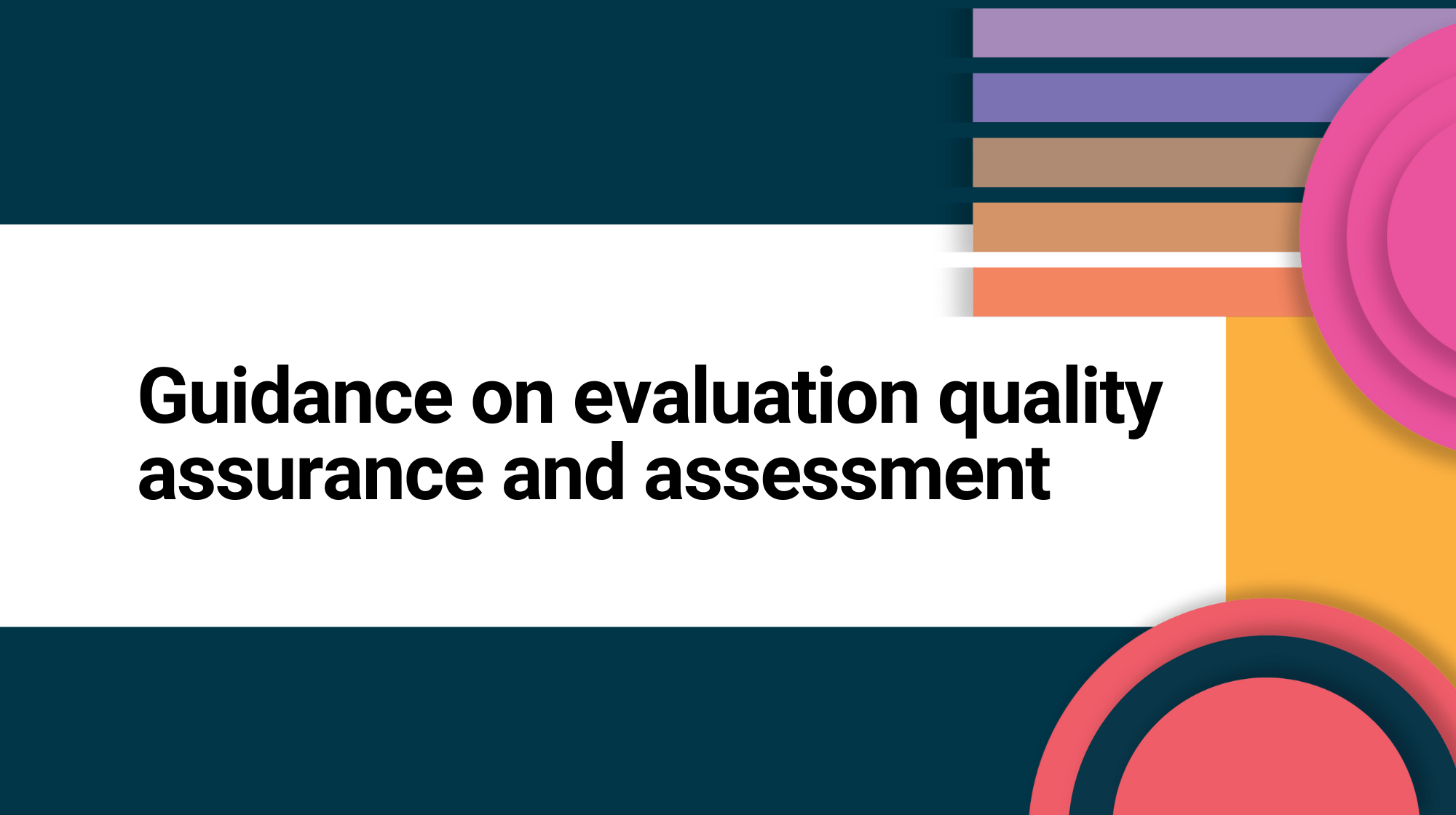
Guidance on evaluation quality assurance and assessment
Resource date: 22 Mar 2024

Resource date: 22 Mar 2024
The UNFPA Evaluation Quality Assurance and Assessment (EQAA) system includes two components to ensure high quality evaluations: quality assurance and quality assessment. Quality assurance takes place throughout each phase of the evaluation, and quality assessment occurs after an evaluation is completed. An external independent reviewer assesses the final evaluation report against established quality standards and criteria.
The revamped EQAA system (2024) further enhances the credibility and quality of evaluations towards advancing the use of evaluation for greater accountability, informed decision-making and adaptation. The EQAA system aligns with the Evaluation Policy 2024 which sets a vision for a higher standard and threshold for evaluation quality. It responds to the independent peer review of the evaluation function 2023, and bolsters coherence with the EQAA systems of sister United Nations agencies, contributing to the United Nations development system reform. It also adheres to UNEG norms and standards and code of conduct for evaluation.
A key feature of the revised EQAA system is the inclusion of all types of decentralized evaluations, including project level and humanitarian evaluations. It also introduces a more rigorous quality assessment framework, which now adapts a five-point rating scale: excellent, highly satisfactory, satisfactory, fair, unsatisfactory. Furthermore, the EQAA places increased emphasis on assessing the theory of change, ensuring the identification of appropriate evaluation questions, meaningful stakeholder engagement and the collaborative development of recommendations. It continues to keep a strong focus on human rights and gender equality, disability inclusion, leaving no one behind, social and environmental standards, and ethical dimensions in evaluation. The EQAA system also captures the use of innovation in evaluation such as the ethical and responsible use of AI in evaluation processes and greater efforts to enhance inclusion and participation in the evaluation.